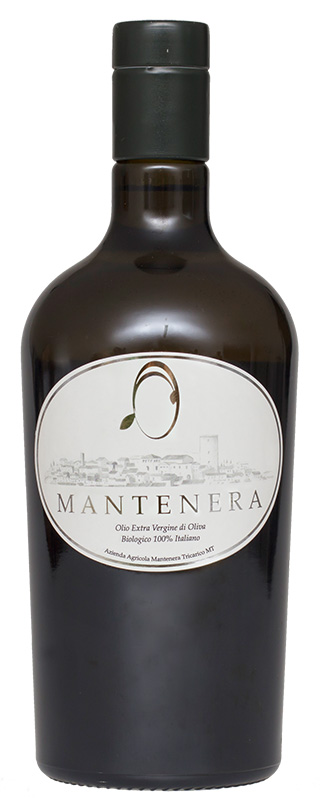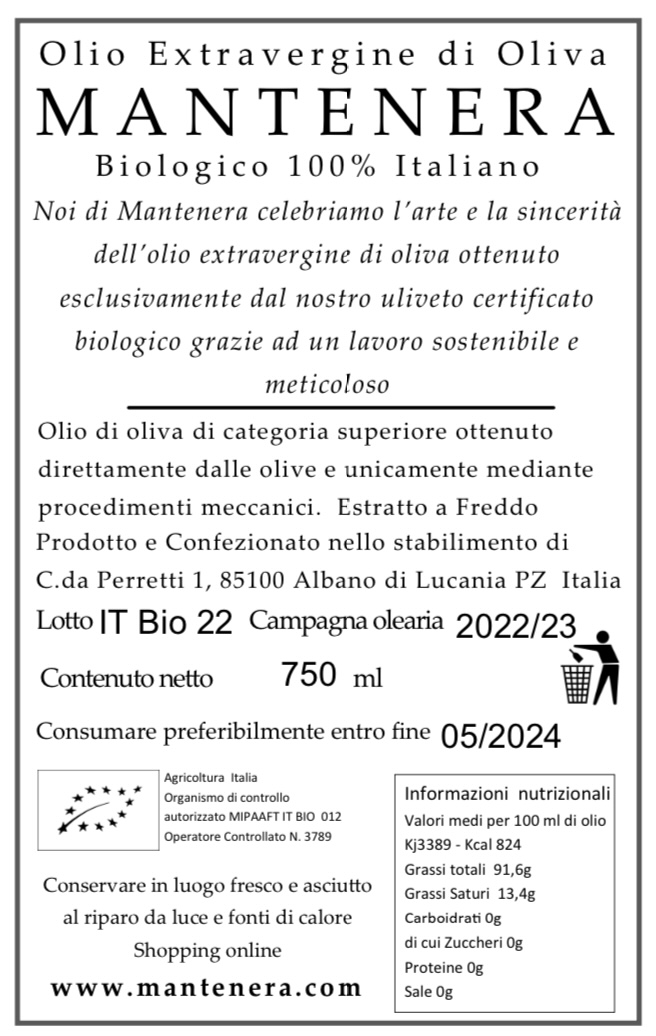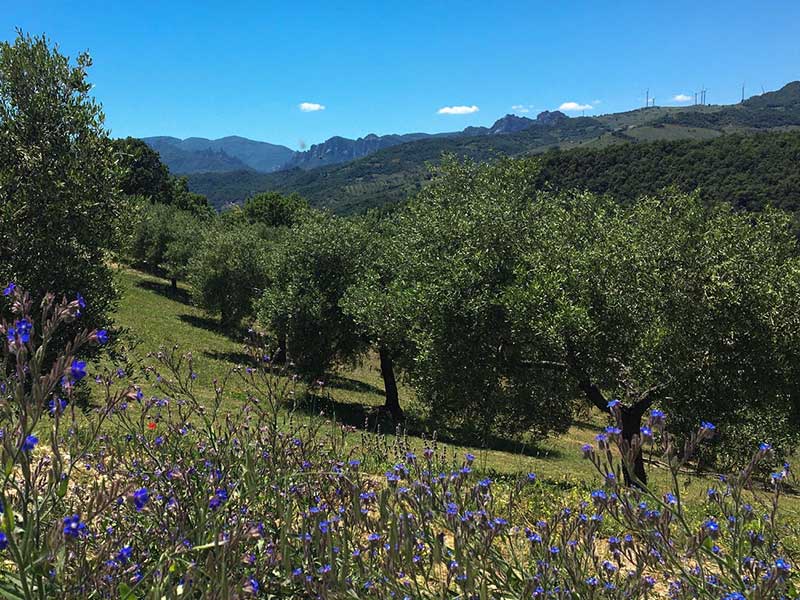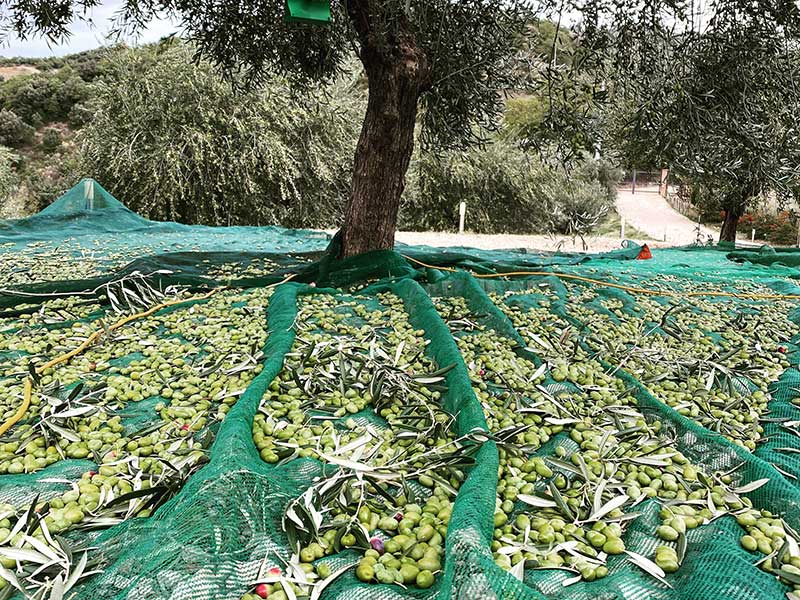Passion and love for nature, respect for the environment and biodiversity are the cardinal principles that guide us in the cultivation and production of Mantenera Organic Extra Virgin Olive Oil from our olive trees at the basis of our choice not to use pesticides and chemical fertilizers for the protection of consumer health by operating in full compliance with the principles of organic farming.
Our company is located in an uncontaminated area surrounded by woods and falling within the buffer zone of the Gallipoli Cognato Piccole Dolomiti Lucane Park at 450m above sea level.
Our project was born in 2012 from the desire for a more sustainable lifestyle change close to nature, sustainability - respect - awareness are the values that guide us.
Our commitment:
-
Recovery of rainwater used for irrigation
-
Reuse of pruning waste to create protection grids for terraces in the olive grove
-
Composting herbs and prunings to generate organic compost
-
Mulching made by shredding weeds
-
No tillage = reduced CO2 emissions
-
Use of recycled and recyclable packaging
-
Reuse of packaging material
-
Training
-
Company structures built in green building in energy class A+
-
Solar thermal system for hot water production
Mantenera produces, transforms and markets its products. Seasonality and Biodiversity represent the cornerstones of our production: selecting and transforming the products according to the natural cycle and promoting our strong commitment to the preservation of biodiversity. Certified organic since 2015 by SIDEL.
Since 2015, Mantenera has chosen not to carry out mechanical tillage of the soil, favoring spontaneous grassing, this to avoid runoff and erosion, furthermore, grassing contributes effectively to maintaining the optimal chemical and physical characteristics of the soil, also counteracting the rise of temperatures. The management of the soil through the shredding of the grass and the pruning residues in the inter rows of the olive grove favor the generation of organic compost for the natural fertilization of the soil, as demonstrated by the studies SUSTAINABLE TECHNIQUES FOR THE REDUCTION OF CARBON AND WATER FOOTPRINT by Prof Cristos Xiloyannis DiCEM- University of Basilicata in the 24th Plant Medicine Forum.
Maintaining not using combustion agricultural vehicles avoids further CO2 emissions
Organic agriculture is a production method that respects human and animal well-being and defends the environmental and cultural biodiversity of the territories: it is a model of sustainable development aimed at safeguarding the environment and the territory and enhancing the quality of the resources of local communities. Product certification fully embraces the company philosophy, ensures the traceability of the supply chain from raw materials to the finished product and guarantees product quality and consumerprotection.
In this sense, olive growing must certainly be counted among the virtuous activities, since it can absorb upto six times the amount of CO2 emitted. The International Olive Council has calculated that 10.65 kg of carbon dioxide are absorbed to produce one liter of olive. And the ratio becomes even higher when organicand eco-sustainable agriculture is considered, therefore, if an olive tree is able to absorb 2 kilos of CO2 perday, there is no doubt that the olive grove can become a useful tool to fight global climate change.








